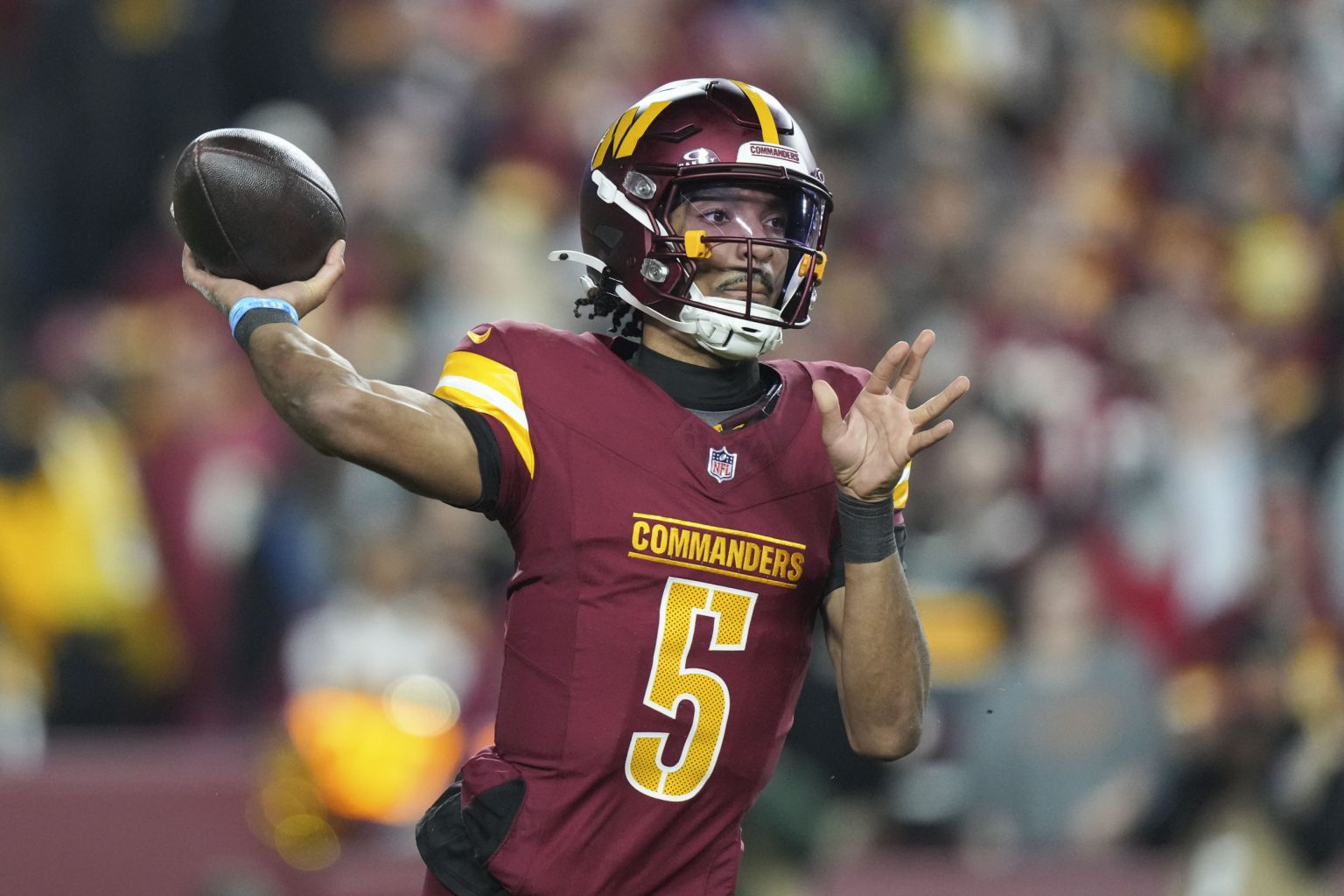The omission of the Redskins logo from a graphic comparing rookie quarterback Jayden Daniels’ record-breaking rushing season to that of Robert Griffin III in 2012 has sparked renewed debate surrounding the Washington Commanders’ controversial name change. During the Sunday Night Football broadcast of the Commanders’ overtime victory against the Atlanta Falcons, NBC aired a graphic juxtaposing Daniels and Griffin. However, the network noticeably edited out the Redskins text and logo from Griffin’s jersey, a move that quickly caught the attention of fans and ignited discussions across social media platforms. This seemingly small edit reignites the broader conversation surrounding the team’s decision to retire the Redskins name and logo in 2020, a decision made amidst widespread protests against racial injustice and growing concerns about cultural sensitivity. The incident also occurs against the backdrop of ongoing discussions about potentially reintroducing the old logo in limited capacities, such as throwback merchandise, with a portion of the proceeds possibly benefiting Native American causes.
The controversy surrounding the Redskins name and logo has been a long and contentious one. For many years, Native American groups and their allies voiced strong objections to the name, arguing that it was a derogatory and offensive term. The debate intensified in the summer of 2020, following the death of George Floyd and the subsequent wave of protests against racial injustice that swept across the nation. Under mounting pressure from sponsors, activists, and even some political figures, the team finally relented and retired the Redskins name and logo, adopting the temporary moniker “Washington Football Team” before ultimately rebranding as the Commanders in 2022. While the name change was welcomed by many, it also drew criticism from a segment of the fanbase who viewed it as an overreaction to political correctness and an erasure of team history.
The NBC broadcast’s decision to edit the logo from Griffin’s jersey added fuel to this already smoldering fire. Fans flocked to social media to express their opinions, with many criticizing the network for what they perceived as an act of censorship and a blatant disregard for the team’s history. Some even called for the reinstatement of the Redskins name and logo, arguing that it represented a cherished tradition and that the team had bowed to undue pressure. Others, however, defended the edit, emphasizing the importance of respecting Native American sensitivities and moving forward with a more inclusive and respectful brand identity. The incident highlights the deep divisions that still exist within the fanbase and the complexities of reconciling historical traditions with contemporary social values.
The timing of this incident is particularly noteworthy given the reported ongoing discussions about the potential reintroduction of the old logo in limited contexts. While team owner Josh Harris has publicly stated that there are no plans to restore the Redskins name, rumors persist about the possibility of using the logo on throwback merchandise or other commemorative items, with a portion of the proceeds potentially benefiting Native American organizations. Such a move could be seen as a way to acknowledge the team’s history while also addressing some of the concerns raised by the Native American community. However, it remains a highly sensitive issue, and any decision in this regard is likely to be met with both praise and criticism.
The Commanders’ playoff berth, secured by their overtime victory against the Falcons, adds another layer of complexity to this ongoing saga. The team’s return to the postseason after a two-year absence has naturally generated excitement among fans and has brought renewed attention to the franchise. However, the resurfacing of the logo controversy threatens to overshadow the team’s on-field success and reignite the passionate debate about the team’s identity. The incident underscores the challenges faced by organizations navigating complex social and cultural landscapes, particularly in the context of professional sports, where team names and logos often carry deep emotional significance for fans.
Moving forward, the Commanders organization will need to carefully consider how to navigate these sensitive issues. While acknowledging and respecting the team’s history is important, so too is the need to embrace a more inclusive and respectful future. Finding a path forward that satisfies all stakeholders will undoubtedly be a difficult task, but it is one that the team must address if it hopes to move beyond the controversy and build a truly unified fanbase. The ongoing debate surrounding the Redskins logo serves as a reminder of the power of symbols and the importance of engaging in thoughtful and respectful dialogue about the legacies we inherit and the values we choose to embrace. The Commanders’ journey towards a new identity is far from over, and the decisions made in the coming months and years will have a lasting impact on the franchise and its relationship with its fans.


